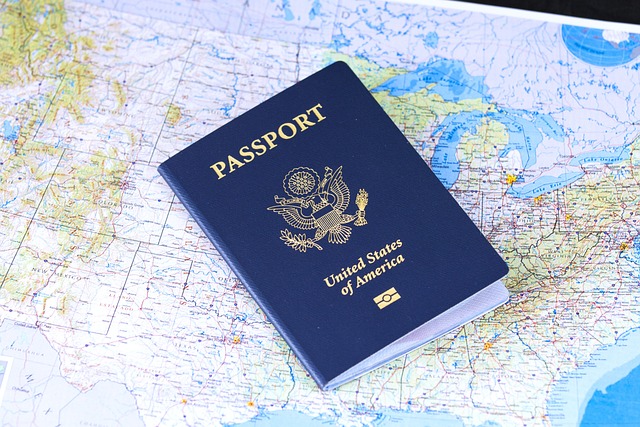Rapid Translate Team
Despite being so technical, court documents typically require high levels of accuracy during translation. As a result, only experienced translators with expertise in the legal field handle such documents. Still, many questions exist about the role of a court-certified translator and how to become one.
These court translators handle courtroom documents, making certified copies in other languages. They require certified translations since court documents usually fall within the legal documents category.
In this article, we’ll unpack the importance of these translators in legal settings and becoming one. So, read on to learn everything you need to know!

Table of Contents
Why Court-Certified Translators Are Important
Most legal and courtroom processes require certified translations when there are language disparities.
Certified translators usually handle such tasks since court documents fall within the legal category. But why are these translators important? What are their roles?
1. Certified Translators Offer Accurate and Precise Court Translations
Court-certified translators undergo rigorous training before they are fit to work as professionals. These translators must also take some tests to prove their language skills. As a result, they usually understand the nuances and cultural contexts of different languages.
Their knowledge of the specialized terminology in the courtroom and legal setting also boosts their abilities as translators. So, you’re certain to get accurate and precise translations for your courtroom documents.
2. Court Certified Translators Usually Have Industry Knowledge
For different fields, there are always different terminology and jargon. Experts in those fields usually have a stronghold of the language in their respective fields. In the same way, court-certified translators typically have expert-level knowledge of legal and courtroom language.
This expertise helps them to undertake court translations, correctly interpreting even the technical terms. Ultimately, they can adequately create copies of these documents in different languages while maintaining their meaning. Since accuracy is crucial in legal contexts, this helps keep the integrity of such documents.
3. These Translators Keep up With Cultural Contexts
Language and culture go hand in hand. You must possess a good cultural understanding of a particular language to translate it properly. So, certified translators are usually well aware of the cultural sides of both their first and foreign languages. This provides an edge when working on documents.
A bland knowledge of the language only helps translate the document’s words. However, this cultural awareness helps them factor in their intended meaning and cultural biases.
4. Certified Translators Offer Legally Binding Translations
Most legal activities require certified translations. Courtroom proceedings also fall within this category. So, hiring a court-certified translator makes your document more acceptable and legally binding. Since you must also certify these legal and official translations, it is essential to go with these translators.
Courts, government agencies, and other institutions will more likely accept court documents from certified translators. These institutions consider these translators professionals, thus placing more faith in their work.

How To Become a Court-Certified Translator
Court-certified translators usually follow the same route as any other certified translators. Of course, the courtroom experience or certification in any legal field adds to their pedigree and is sometimes a requirement. But you must possess translation skills and have a native fluency level in at least two languages.
If you’re thinking about how to become a court-certified translator, you must have a bachelor’s degree. This degree must be in Spanish, English, or other applicable languages. Your fluency in at least two languages should also cover knowledge of legal terms. A cultural understanding of the language is a plus.
Since some schools offer languages and legal studies majors, consider this combination. Subsequent continuing education courses also count in this respect. You must take the Federal Court Interpreter Certification Examination (FCICE) to become certified. This exam tests qualified interpreters for courts.
While you’re not an interpreter, this course authenticates your status as a court translator. Many states only recognize certification exams from the American Translators Association (ATA) or the National Center for State Courts (NCSC).
The ATA certification is one of the most respected options for translators in the United States. Translators must scale through a three-hour exam to earn this certification. The exam tests your knowledge of the language text, translation techniques, and writing in the target language.
Consider honing your skills in two or more languages and upping your knowledge in the legal field. Afterward, build your experience and obtain a relevant certification to become a certified professional in the field.
How To Become a California Court-Certified Translator
Are you thinking about becoming a California court-certified translator? The California courts require you to be at least 18 years old to become a certified court translator. It also requires you to have the necessary language skills.
In that respect, you should be able to aid communication between the court and other people. This includes accurately translating documents from one language to another in a court setting. However, you must take an exam to test your proficiency.
To become a court-certified translator in California, you must first prove your knowledge. First, you must pass oral proficiency and English-only written exams. You must also pass the bilingual oral interpreting exam. But besides this, you’ll need a certification for some specific languages.
The California courts usually wrap court interpreters and translators under a single umbrella. While they are quite different in a way, they function similarly. Court translators deal with written text, while interpreters only work with spoken language.
Where To Get Court-Certified Translation Services
Are you looking for court-certified translation services? Several online agencies and translators offer this service. You can also get a certified document translation service near you. These agencies mostly work with experienced professionals, creating high-level results. Well, several options stand out among their peers in the industry.
Here are a few to consider:
1. Rush Translate Offers Court-Certified Translations
Consider getting your certified translation services from Rush Translate. The agency covers documents like depositions, evidence, and prior judgments. It offers word-for-word translations with a stamped and signed certificate of accuracy.
Rush Translate offers certified translation services, charging $24.95 per page. The agency provides services with a 24-hour turnaround time. Besides receiving certifications, you can also opt for notarizations for these documents.
2. Rapid Translate Translates and Certifies Court Documents
Rapid Translate provides accurate certified translation across a wide range of documents. The translation agency works with a lot of court documents. Depositions, affidavits, court letters, and legal contracts all fall within this category.
The agency also covers a wide array of other legal documents. These include documents from processes like criminal proceedings and institutions like law firms. The agency offers this service in over 60 languages and returns orders with the fastest turnaround times. Think of Rapid Translate when looking for a court-certified translator.
Besides court translation, Rapid Translate helps upgrade your global communication potential. The translation agency helps you expand your business, connect with other cultures, and study abroad. Consider using this company’s accurate translation to bypass language hurdles. Order now to enjoy boundless communication!





